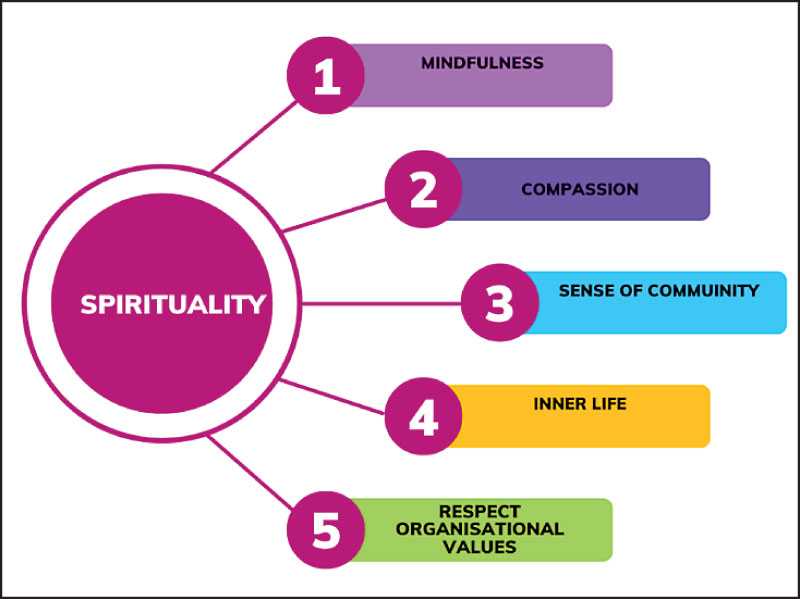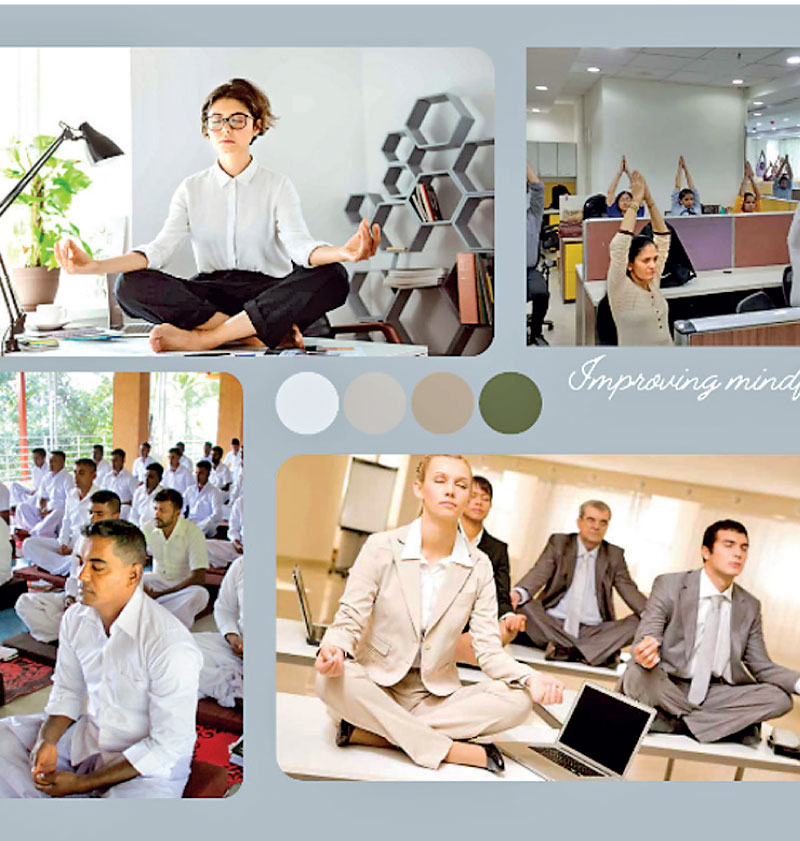Saturday Feb 21, 2026
Saturday Feb 21, 2026
Monday, 8 January 2024 00:17 - - {{hitsCtrl.values.hits}}
 According to the World Health Organization (WHO) 2022 report, suicide remains a significant global concern. Shockingly, there are approximately 20 suicide attempts for every suicide death worldwide. This harrowing statistic underscores the urgency of addressing mental health issues.
According to the World Health Organization (WHO) 2022 report, suicide remains a significant global concern. Shockingly, there are approximately 20 suicide attempts for every suicide death worldwide. This harrowing statistic underscores the urgency of addressing mental health issues.
The report also highlights a concerning trend among schizophrenia patients, who tragically pass away 10 to 20 years earlier than the general population. These premature deaths are often a result of preventable physical illnesses.
In Sri Lanka, while there has been a decrease in suicide rates during the 2014-2019 period, the country still faces challenges. Compared to neighbouring South Asian nations like India (12.7), Pakistan (8.9), and Bangladesh (3.7), as well as the global average (9.2), Sri Lanka’s suicide rates remain relatively high. Furthermore, male suicide rates in Sri Lanka surpass female suicide rates.
Sri Lanka is currently facing a crisis, leading to psychological challenges such as depression and anxiety among its people. It’s crucial to acknowledge that this may result in higher suicide rates in 2021 compared to 2019, given the added stress from fuel, food, and hyperinflation crises.
 In this context, businesses have a vital role to play in supporting their employees. To meet production demands and generate income for domestic and international markets, nations require sustainable businesses. A mentally stable and satisfied workforce is a key factor in the success of any organisation.
In this context, businesses have a vital role to play in supporting their employees. To meet production demands and generate income for domestic and international markets, nations require sustainable businesses. A mentally stable and satisfied workforce is a key factor in the success of any organisation.

Reducing depression and other mental health issues is paramount during a crisis, and one effective approach is the development of spirituality. Spirituality, as defined by Professor Rohana Ulluwishewa (2015), is about being in tune with our true selves.
As we grow, our perceptions change, and we often lose sight of our shared humanity. Cultivating spirituality fosters a sense of oneness, where people recognise their interconnectedness with the universe. This mindset promotes equity, environmental consciousness, and societal progress.
For instance, during a fuel crisis, individuals may adapt their behaviour by using personal vehicles for long trips, public transportation in cities, and bicycles for short journeys, thereby reducing their environmental impact.
Employee spirituality encompasses mindfulness, compassion, interconnectedness, respect for organisational values, and inner life, as suggested by research (Petchsawang & Duchon, 2012; Ashmos & Duchon, 2000).
Enhancing workplace spirituality: A path to positive organisational culture

Source: modernzen.org, theyogainstitute.org| blogspot.com|justbyoga.com|

Source: Annual Reports of Brandix Apparel Limited, Maliban Group Sri Lanka, Cargills Ceylon Limited, Hatton National Bank

Source: Sunday Observer (2019), Daily FT(2016) Bank of Ceylon, All About Sri Lanka, sangam.org
The benefits of fostering spirituality in the workplace
Embracing spirituality in the workplace yields numerous advantages, including heightened productivity, improved safety, enhanced employee well-being, a commitment to organisational values, a stronger sense of community, and a more inclusive and equal work environment. These benefits collectively contribute to a more successful, harmonious, and sustainable organisation.
 1. Enhanced focus and productivity: Practicing mindfulness leads to heightened focus and concentration among employees. This increased mindfulness translates into more intentional work, reduced distractions, and ultimately, higher productivity levels. Consequently, work performance is significantly improved, benefiting both employees and the organisation as a whole.
1. Enhanced focus and productivity: Practicing mindfulness leads to heightened focus and concentration among employees. This increased mindfulness translates into more intentional work, reduced distractions, and ultimately, higher productivity levels. Consequently, work performance is significantly improved, benefiting both employees and the organisation as a whole.
2. Improved safety: Mindful employees are less prone to workplace accidents. Their heightened awareness and attention to detail contribute to a safer work environment. This not only reduces the risk of injuries but also minimises potential disruptions in workflow due to accidents.
3. Enhanced employee well-being: Fostering compassion in the workplace promotes a supportive and empathetic culture. When employees face personal challenges or difficulties, they are less likely to feel isolated. This support network encourages dedication to the organisation and improves work ethic. Furthermore, it contributes to a harmonious work atmosphere, reducing conflicts and enhancing overall job satisfaction.
4. Reinforced organisational values: Most businesses uphold core values such as integrity, dependability, excellence, innovation, accountability, and responsibility. Encouraging employees to embrace these values results in reduced misconduct, corruption, and fraud. This, in turn, enhances the company’s performance, reputation, and trustworthiness in the eyes of stakeholders.
5. Strengthened sense of community: Fostering a sense of community among employees increases their commitment to one another and the organisation. This cohesion leads to improved teamwork, collaboration, and a shared sense of purpose. As a result, employees are more motivated to work towards common goals, benefiting both the workforce and the organisation’s success.
6. Promoting inclusivity and equality: Allowing employees to participate in religious celebrations promotes inclusivity and reduces discrimination within the workplace. This practice fosters a sense of belonging among employees with diverse beliefs and backgrounds. It contributes to a happier and less stressed work environment, promoting equality and diversity.
Final words
In today’s rapidly changing and often tumultuous business landscape, the importance of spirituality within organisations cannot be overstated. This article has explored various avenues for enhancing spirituality, focusing on principles like mindfulness, compassion, values, and inner life. Yet, the possibilities for fostering spirituality in the workplace are boundless, limited only by our imagination and commitment.
Embracing spirituality within a business framework not only promotes employee happiness and reduces stress but also offers a path to sustainable success. It strengthens the bonds of loyalty, integrity, and unity, which are essential for navigating challenging times. In an era where the well-being of both individuals and organisations is at stake, prioritising spirituality becomes not just an option but a strategic imperative for a brighter and more resilient future.
(The writer is a Senior Lecturer attached to the Department of Accountancy, at Wayamba University of Sri Lanka. Currently, she is reading for PhD at the University of Sri Jayewardenepura, Sri Lanka.)